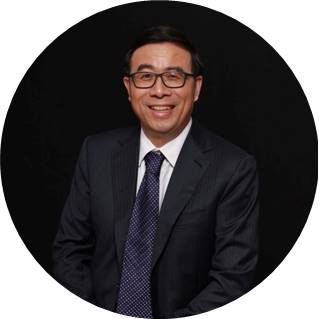Global Massive Open Online Challenge (GMOOC) 2023
GMOOC 2023 is themed on positive psychology, as the importance of students’ mental health has risen significantly in the post-pandemic era. With the rise of the Internet and the rapid development of information technology, online mental health education may play an increasingly important role in the future.
Through GMOOC, we will offer high-quality and intensively communicative online learning resources from Tsinghua University and a strong team of mentors from the University of Pennsylvania for students to gain knowledge of positive psychology, communicate with their peers from all over the world, and incubate their own innovative solutions to bravely take a small step towards changing the world.
Supported by:
The 2030 Agenda for Sustainable Development
The Agenda is “a plan of action for people, planet and prosperity”. It comprises of 17 Sustainable Development Goals (SDGs). These goals are indivisible and encompass economic, social and environmental dimensions. Positive psychology aims to enhance personal and societal well-being by promoting positive emotions, resilience, and beneficial human traits. With the SDGs addressing a wide range of issues, the principles of positive psychology can be seen to align with and contribute to several specific targets within these goals, particularly those promoting mental health, quality education, and a wholesome work environment.
SDG 3 – Good Health and Well-being:
- Target 3.4: By 2030, reduce by one third premature mortality from non-communicable diseases through prevention and treatment and promote mental health and well-being. Positive psychology is directly applicable to this target as it can provide approaches for mental health promotion and prevention strategies, contributing to an overall decrease in premature mortality from mental health issues.
- Target 3.5: Strengthen the prevention and treatment of substance abuse, including narcotic drug abuse and harmful use of alcohol. Through techniques that boost resilience and promote positive mental states, positive psychology can also contribute to strategies preventing substance abuse.
SDG 4 – Quality Education:
- Target 4.7: By 2030, ensure that all learners acquire the knowledge and skills needed to promote sustainable development, including, among others, through education for sustainable development and sustainable lifestyles, human rights, gender equality, promotion of a culture of peace and non-violence, global citizenship and appreciation of cultural diversity and of culture’s contribution to sustainable development. Positive psychology can provide tools and interventions to enhance resilience, positive emotions, and motivation among students, fostering an environment conducive to the attainment of this target.
SDG 8 – Decent Work and Economic Growth:
- Target 8.5: By 2030, achieve full and productive employment and decent work for all women and men, including for young people and persons with disabilities, and equal pay for work of equal value. Positive psychology practices can be leveraged in the workplace to improve well-being, increase job satisfaction, and mitigate work-related stress, leading to a more productive and equitable work environment.
Lecturers
Tsinghua University’s Positive Psychology Research Center

Kaiping Peng
Professor of Psychology and Dean, School of Social Sciences, Tsinghua University

Yukun Zhao
Vice Director, Positive Psychology Research Center, School of Social Sciences, Tsinghua University
mentors
University of Pennsylvania’s Master of Applied Positive Psychology (MAPP)

Dengting Boyanton
President of Sino-American, Educational Research Association (S-AERA), Dean of Flourish Positive Psychology Institute

Jamie Sun Chung
Entrepreneur, Investor, HR Executive

Lixian Xie
Founder & CEO at iMD Consulting & Mindln, Positive Psychology Instructor (certificate) at Tsinghua University

Eugene (Yu Jin) Tee
Associate professor, researcher, and certified trainer in Malaysia
Learning Process
Self-paced MOOC Learning
We will send you the link to the MOOC on positive psychology. This online course contains eight 1-hour lectures taught by Prof. Kaiping Peng, Dean of the School of Social Sciences at Tsinghua University, and Dr. Yukun Zhao, Positive Psychology Research Center of the School of Social Sciences at Tsinghua University. This part will not be evaluated or assessed.
Synchronized learning
Students will meet with peers and mentors from the University of Pennsylvania online, and then collaborate in groups to incubate their innovative solutions to changing the world through the power of positive psychology. The mentors will instruct the students in self-thinking and team building to create innovative solutions, and provide training on presentations.
What will students receive?
All participants completing the project will receive a certificate of completion issued by the Global MOOC and Online Education Alliance and the Center for Positive Psychology Research of the School of Social Sciences at Tsinghua University.
Based on the performance and final presentation, the mentors will select five outstanding teams. Their innovative solution will be edited by the organizing team into an e-portfolio in commemoration of the journey of GMOOC 2023 and as a contributory output.
Each outstanding team will also have opportunities to be invited to other events of the Global MOOC and Online Education Alliance, e.g., to present their project at the Online Education Dialogue, and may receive letters of recommendation from their mentors.
Schedule
To meet you in april 2023
- March 1st – March 31st, registration
- April 1st-April 5th, self-paced MOOC learning
- April 6th to 19th, synchronized learning
Any questions?
Get in touch at [email protected]


